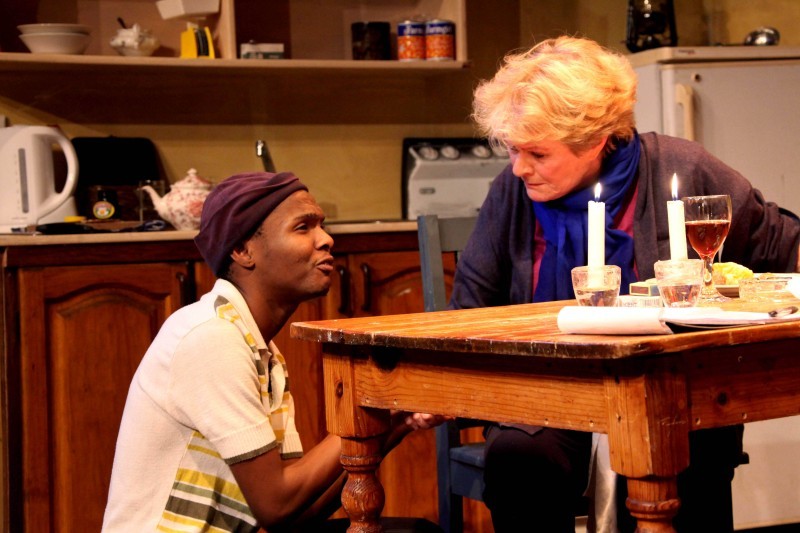Solomon and Marion takes place in South Africa in the months just prior to the 2010 World Cup, but could be set in any number of places. I overheard someone say at the play’s close, “I thought there’d be more talk about apartheid and what that was like.” I fear they missed the point.
Anyone expecting a direct back-and-forth debate about post-apartheid tensions and contentions will be disappointed, as while that context is important – crucial, even – what is most essential here is a sense of humanity not only confronting the past, whatever past that may be, but looking forward.
Marion Banning (Janet Suzman) is an obstinate and articulate grandmother living in a dangerous locale “between town and township” with only ghosts and sad memories for company. She spends her days smoking, sleeping and writing letters to her daughter who has migrated from violent South Africa to bright and boring Australia.
When teenager Solomon Xaba (Khayalethu Anthony), the grandson of the woman who used to do her washing, interrupts her solitude under suspicious circumstances, initially she is wary. Nevertheless, their staccato conversations preface unspoken and deeply affective truths.
Lara Foot wrote this two-hander with Suzman in mind. Much of the press material surrounding the play appears to have focused on Suzman’s role. While sometimes she plays the comedy a little broadly, she is an undeniably accomplished stage presence, emanating warmth in even her steeliest moments.
In my opinion, though, it is Anthony who makes the greater impression here. Charming yet volatile, the speech in which Solomon finally gives “Miss Marion” full disclosure for his reasons for watching her is a masterclass in emotive storytelling.
Solomon says, “Like you, I have nothing to lose” at one point. He is verbalising one of the grounds on which he and Marion have a connection, but he is also speaking to a disillusioned South African populace, and more widely to a particular community of sentiment.
Foot appears to be suggesting that rumination on a previous struggle can lead to stagnation and a particularistic view of identity, but that progress can always be made if people deny limitations. Whether young or old, black or white, male or female, unity in humanity can always be found.
Quiet and disquieting, Solomon and Marion is a story of discursive revelation, one where a pineapple atop a television makes a strong case for hopefulness. ★★★★☆ Will Amott 23/10/14
Photos by Jesse Kramer


